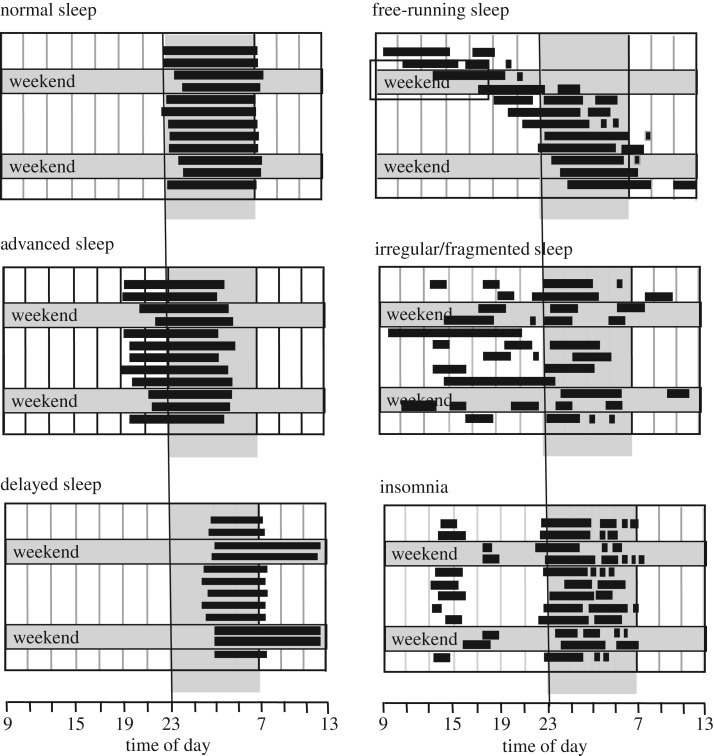Figure 6.
Illustration of altered sleep patterns arising from multiple causes. Filled horizontal bars represent periods of sleep on consecutive work days and at the weekend. Advanced sleep phase disorder (ASPD) is characterized by difficulty staying awake in the evening and difficulty staying asleep in the early morning. Typically, individuals go to bed and rise about 3 or more hours earlier than the societal norm; delayed sleep phase disorder (DSPD) is characterized by 3 h delay or more in sleep onset and offset. This often leads to greatly reduced sleep duration during the working week and extended sleep on free days. ASPD and DSPD can be considered as pathological extremes of morning (lark) or evening (owl) preferences. It is important to stress that ASPD and DSPD are not merely shifted sleep/wake patterns, but conditions that cause distress or impairment because they conflict with the schedules demanded by societal pressures or personal preferences; Free-running or non-24-h sleep/wake disorder describes a condition where an individual's sleep occurs later and later each day. This has been observed in individuals with complete eye loss or other conditions such as schizophrenia; irregular or completely fragmented sleep is typically observed in individuals who lack a circadian clock. Note: ASPD, DSPS, free-running and irregular sleep/wake patterns are most often, but not exclusively, linked to circadian rhythm abnormalities. Insomnia can be used to describe both a symptom or a disorder, and if a disorder describes a condition that leads to difficulty falling asleep or staying asleep, even when a person has the chance to do so. Insomnia is frequently associated with reduced sleep (hyposomnia) and can arise from multiple causes [68].

